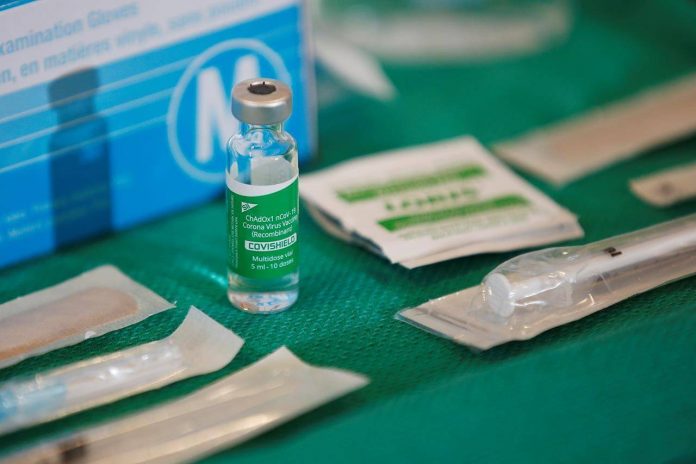Health Canada is devising a warning about a rare possible side-effect of blood clots from the Oxford-AstraZeneca vaccine but is still certain the inoculation is safe and effective against COVID-19.
The department’s chief medical adviser Dr. Supriya Sharma said Tuesday the plan for a warning comes on the heels of a similar move in Europe last week but doesn’t change Health Canada’s analysis that the vaccine’s benefits outweigh its risks.
“We were observers at that European Medicines Agency subcommittee meeting, we’ve looked at the data as well,” she said. “And so we’re in the process of making similar changes to the information for Canadians.”
The European Medicines Agency last week amended its authorization of the vaccine to say there is no overall increase in the risk of blood clots after getting the vaccine but added a warning that a small number of patients had developed rare blood clots in the brain after getting it.
At the time the EMA couldn’t say if the clots were related to the vaccine. German and Norwegian scientists have since said in a very small number of patients the vaccine is causing an extreme immune response that is leading to the clots. It is a treatable condition, they said.
The EMA reported 18 cases of cerebral venous sinus thrombosis, out of about 20 million people who received the Oxford-AstraZeneca vaccine in Europe, the United Kingdom, and India, and seven cases of another type of clotting disorder related to very low platelet counts.
Sharma said the vaccine is still hugely beneficial, including protecting against severe illness and death from the novel coronavirus’s variants of concern, but Health Canada is looking to adjust the label on the vaccine to note the reports of the rare types of clots and potential symptoms that could occur. Those include, she said, persistent and intense headaches that last for several days, shortness of breath and pain in the legs.
Sharma said there is no doubt all of the reports about this vaccine are a concern because they feed fears about its safety. She said Health Canada will continue to provide accurate and current information so Canadians can trust the vaccine is safe to get.
“We’ve said this many times before, that even the most effective vaccine only works if people trust it and agree to receive it,” she said. “It’s like any other reputation — once there’s some doubt that creeps into that reputation, it’s that much more difficult to gain that back.”
Canada has thus far received about 500,000 doses of the Oxford-AstraZeneca vaccine and expects to get 1.5 million more as soon as this week from the United States.
Even without those doses Canada’s deliveries of more than two million doses of other COVID-19 vaccines from Pfizer-BioNTech and Moderna are the most in a week yet. Though the first of two shipments expected from Moderna has been delayed a day, arriving Wednesday instead of Tuesday.
More than 3.5 million people in Canada have received at least one dose now.
Chief public health officer Dr. Theresa Tam said she knows everyone is tired of the “tricks and turns of this virus” and said there are many reasons to be hopeful, including the faster pace of vaccinations.
Still she warned, variants of concern continue to rise and the number of new COVID-19 cases rose 15 per cent over the last week. In turn, the numbers of people in hospital overall, and those needing intensive care, are creeping upwards.
In the last week an average of 2,100 people were in hospital in Canada being treated for COVID-19 on any given day, including 580 in critical care, compared to 2,040 in hospital and 550 in ICUs a week ago.
Since vaccinations began, COVID-19 infection rates in people over 80 have slowed, said Tam, but younger people, particularly under the age of 40, are seeing higher rates.
Dr. Deena Hinshaw, the chief medical officer of health in Alberta, said 88 per cent of the 48 patients in intensive care in that province are under age 65. Hinshaw said people need to continue to make good decisions to keep the spread of the virus down.
“Now is not the time to abandon the practices that have protected our communities and health care system over the past year,” said Hinshaw on Twitter. “Once we hit a growth phase of this virus, our #s will not stand still.”
































